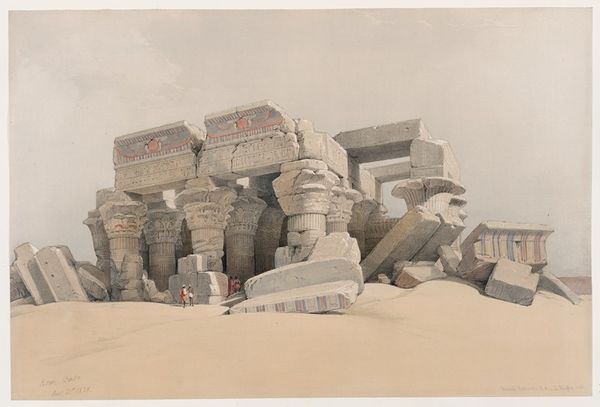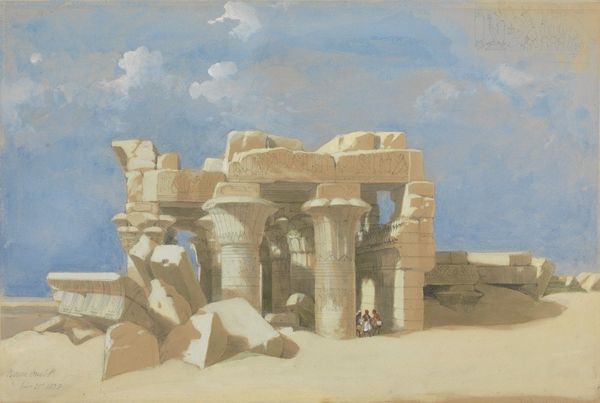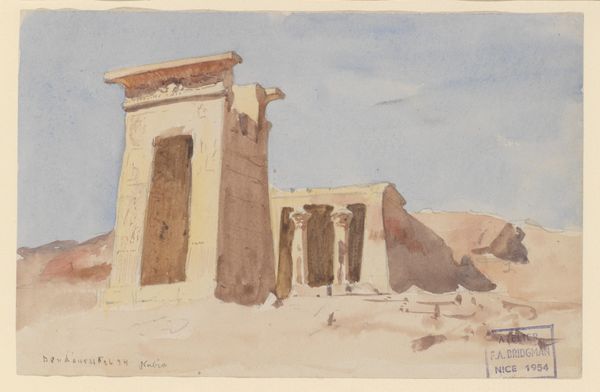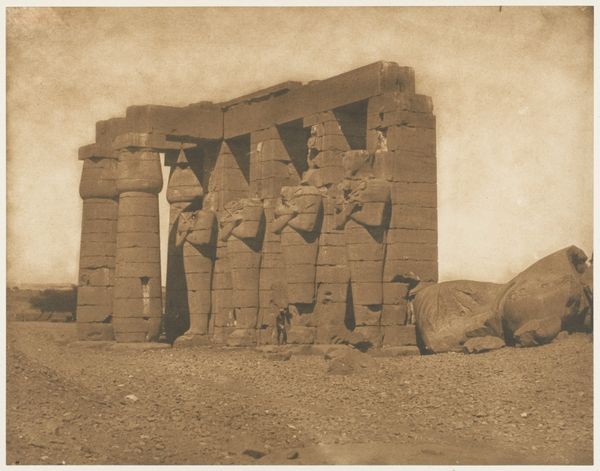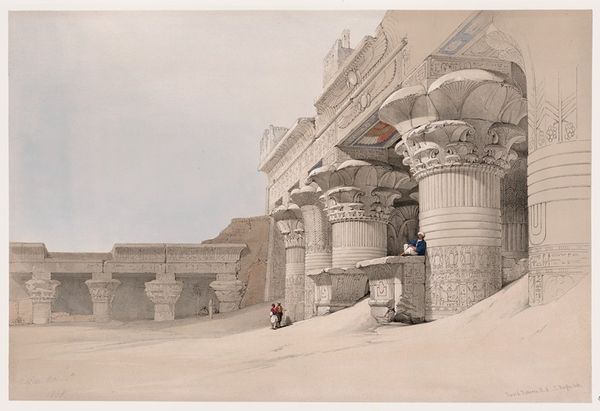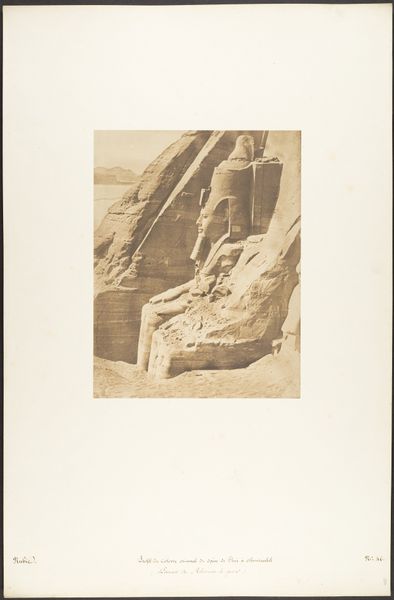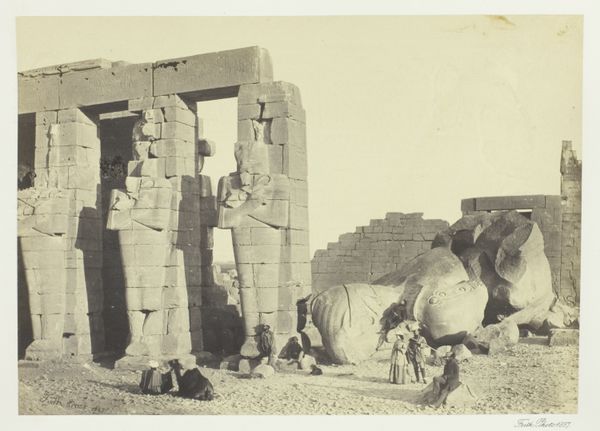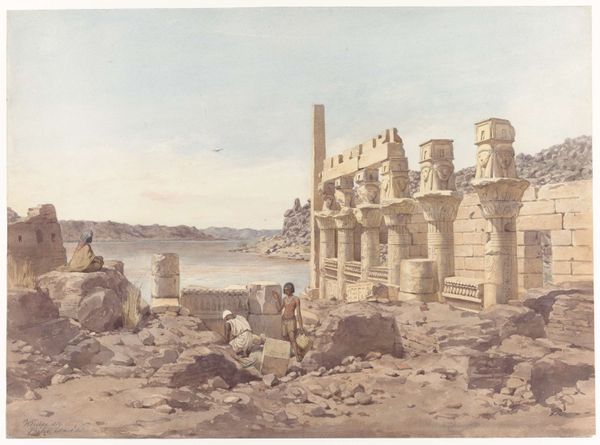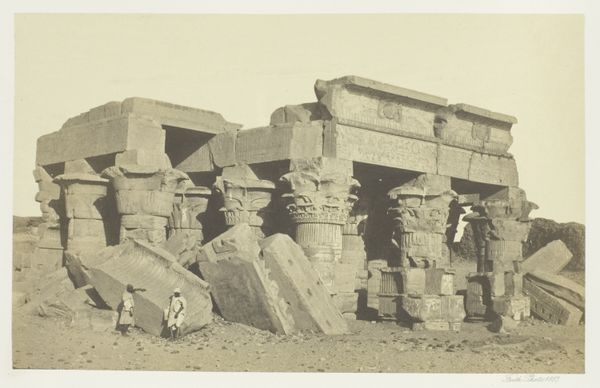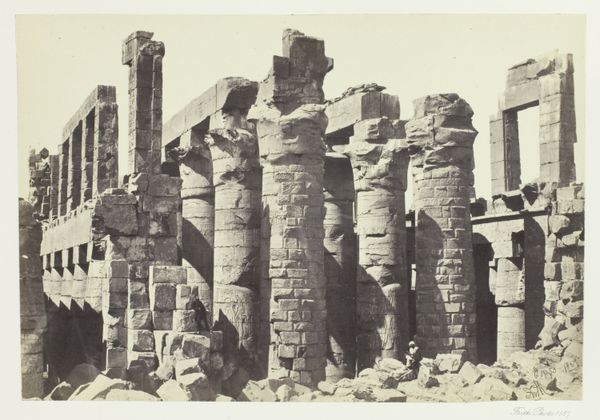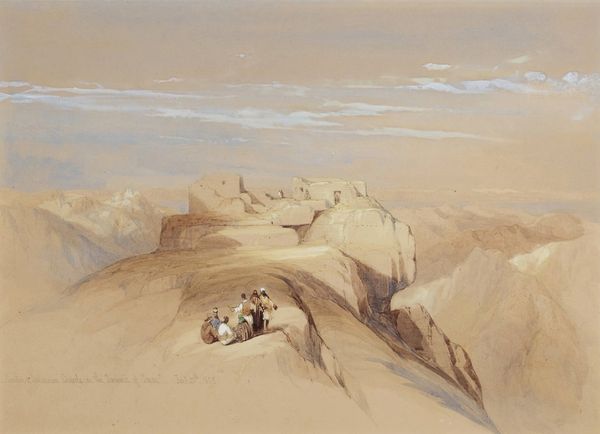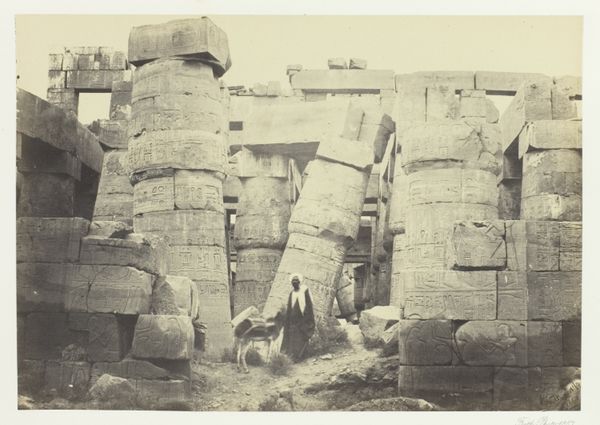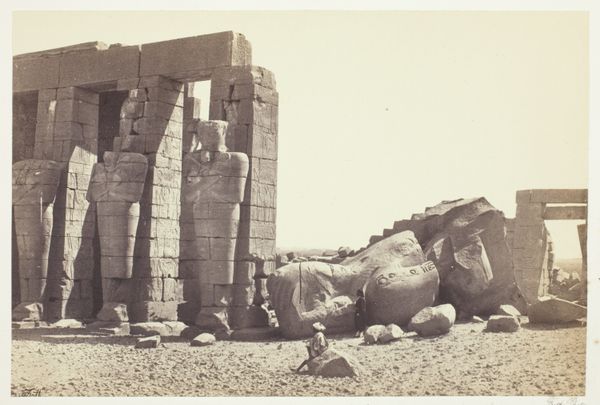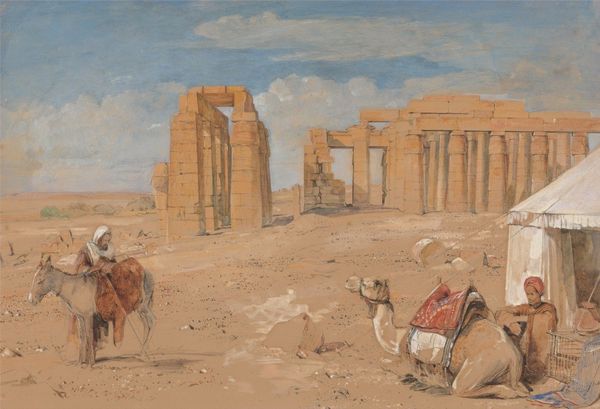
print, watercolor
# print
#
landscape
#
ancient-egyptian-art
#
charcoal drawing
#
watercolor
#
ancient-mediterranean
#
watercolour illustration
#
history-painting
#
watercolor
Dimensions: 12 15/16 x 19 5/16 in. (32.86 x 49.05 cm) (plate)17 1/2 x 24 5/8 in. (44.45 x 62.55 cm) (sheet)
Copyright: Public Domain
Louis Haghe created this print of the Remains of the Portico of the Temple of Kom Ombo sometime in the 19th century. The printmaking process itself is crucial to understanding this work. Lithography, the technique used here, involves drawing an image on a flat stone or metal plate with a greasy substance, then applying ink, which adheres only to the drawn areas. This allows for relatively quick and inexpensive reproduction, perfectly suited to the 19th century's burgeoning market for images of faraway lands. The texture is smooth and even, lacking the handmade quality you might see in a unique drawing or painting. The colours, though subtle, are uniformly applied, which speaks to industrial methods of production and distribution. Haghe never visited Egypt, which makes you wonder, what kind of labour went into this image? Did Haghe rely on sketches, photographs, or descriptions made by others? This print, therefore, is not just an image of ancient ruins, but also a product of its time, enmeshed in the technologies and social structures of 19th-century industrial capitalism.
Comments
No comments
Be the first to comment and join the conversation on the ultimate creative platform.
